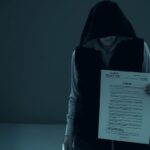The Atlantic Editor Reveals Moment of Realizing Yemen War Plans Authenticity
Jeffrey Goldberg of The Atlantic shared his shock at discovering a group chat outlining U.S. war plans for Yemen while in a Safeway parking lot. Despite denials from defense officials, Goldberg asserted that sensitive military details were shared. The incident prompted widespread bipartisan concern over national security practices and communication protocols.
Jeffrey Goldberg, editor of The Atlantic, recounted a significant moment when he realized the authenticity of U.S. war plans regarding Yemen. He was in a Safeway parking lot when he received an alert about a group chat on Signal, purportedly created by National Security Adviser Mike Waltz, that included notable White House officials like Vice President JD Vance and Defense Secretary Pete Hegseth. Initial skepticism turned into shock as actual strike times on Yemen were shared, confirming the chat’s legitimacy.
During an interview on CNN, Goldberg expressed his astonishment, stating, “I’m sitting in a Safeway parking lot, watching my phone and realizing, ‘Oh my God, this might be real.'” He noted that Hegseth had, indeed, shared specific targeting information in the chat. In a follow-up discussion on MSNBC, he reflected on the potential consequences of sensitive information being leaked, expressing relief that adversaries had not been included in the conversation.
When prompted to respond to Hegseth’s denial about “texting war plans,” Goldberg emphatically countered, “No, that’s a lie, he was texting war plans.” He detailed that the discussions included operational specifics about attacks, emphasizing the severity of the breach.
President Trump initially responded to the situation by claiming ignorance of the events and dismissing The Atlantic’s credibility. However, he later defended Waltz, downplaying the incident as a minor issue and remarking that Waltz had learned a valuable lesson.
In the aftermath of the leak, both Democratic and Republican lawmakers have called for accountability. Pete Buttigieg labeled the event as an extreme failure, while Republican Representative Don Bacon critiqued the use of unsecured communication channels, stressing that such details should never be discussed on non-secure systems due to potential enemy surveillance.
In summary, Jeffrey Goldberg’s startling revelation about a group chat detailing U.S. military actions in Yemen raises critical concerns regarding national security protocols. The incident signals a need for stricter measures surrounding classified communications, especially given the bipartisan outcry for accountability in the wake of this leak. Both political parties must address the implications of this event to prevent similar breaches in the future.
Original Source: www.independent.co.uk








Post Comment